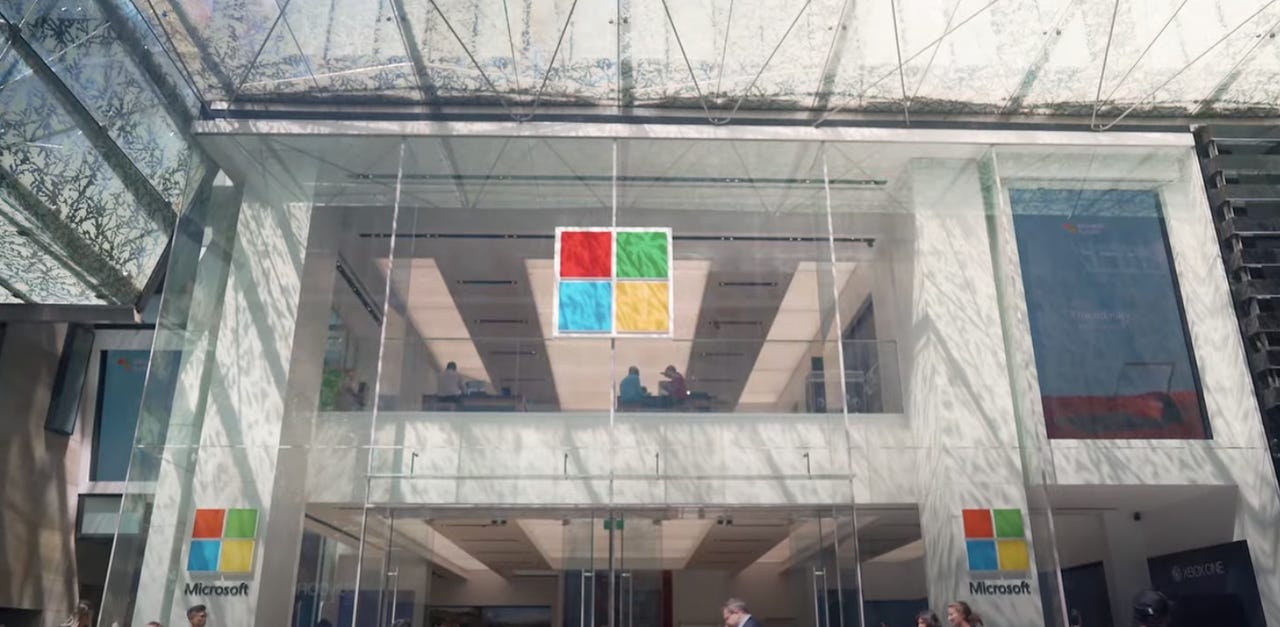
































Collaboration isn't working?
(A screenshot from a Microsoft video.)
A screenshot from a Microsoft video.We live to feel good.
Here are 's top picks for a variety of use cases.
Read nowThat's the American way. We get up every day; we're excited about our lives, our jobsandour bank balances.
At least that's what we say -- because a positive attitude is vital to being, or appearing to be, a success.
Yet is this everything? And has the pandemic incited us to wonder whether we're really so excited about working at all? Even if we're the boss.
I've been wondering this for a while, as have the people at Microsoft.
I know this because Microsoft's Dawn Klinghoffer and Elizabeth McCune have written about it in theHarvard Business Review.
Klinghoffer is the company's head of people analytics, a title that makes her sound like the company shrink. McCune has an even more disturbing title: director of employee listening systems and culture measurement.
Employee listening systems? Shouldn't that be Chief Surveillance Officer?
In essence, these two executives seek to discover how Microsoft's employees are feeling about their lives at Microsoft. And, indeed, about their real lives.
You might think the researchers' priority is employee engagement.
It's such anowword isn't it? Engagement. Brands crave it; companies are desperate for it. It's as if we can't wait to be married to a company but are still waiting for the big day, wondering who'll be there.
Microsoft's deep researchers, however, are over engagement. They discovered it seemed to mask the truth that some employees weren't having such a good time.
"To us, this was a reflection that we hadn't yet set a high enough bar for the employee experience," said Klinghoffer and McCune. "And it motivated usto dobetter in measuring what matters."
Because if you can't measure it, does it really matter?
Their solution was to make their employee survey shorter -- that should have improved engagement -- and try to discover whether there's a definition of thriving.
You may ask what thriving means beyond being the tagline for Kaiser Permanente.
Well, for Microsoft, it's "to beenergized and empowered to do meaningful work." (The researchers' italics, not mine.)
This is fascinating as, only recently, I wrote about the owner of a small restaurant which seems to retain an astoundingly happy staff. She suggested that the best way to make employees happy is to give them autonomy.
The Microsoft researchers made a simple discovery about those who really weren't happy at their core. They said: "Employees who weren't thriving talked about experiencing siloes, bureaucracy, and a lack of collaboration.
I pause to ask: Does that sound like Microsoft to you?
Klinghoffer and McCune were undeterred in their search for the secret of happiness.
They examined those who spoke most positively about thriving at work and work-life balance. They reached a startling picture of a happy Microsoft employee.
They said: "By combining sentiment data with de-identified calendar and email metadata, we found that those with the best of both worlds had five fewer hours in their workweek span, five fewer collaboration hours, three more focus hours, and 17 fewer employees in their internal network size."
Five fewer collaboration hours? 17 fewer employees in their internal network? Does this suggest that the teamwork mantra isn't working so well? Does it, in fact, intimate that collaboration may have become a buzzword for a collective that is more a bureaucracy than a truly productive organism?
Klinghoffer and McCune say collaboration isn't bad in itself. However, they say: "Itisimportant to be mindful of how intense collaboration can impact work-life balance, and leaders and employees alike should guard against that intensity becoming 24/7."
If you're a leader, you have a way to stop it. If you're an employee, not so much.
It's heartening to learn, though, that perhaps the most important element to making an employee happy at work is giving them time to, well, actually work.
 Горячие метки:
По вопросам бизнеса
Компании-производители
Горячие метки:
По вопросам бизнеса
Компании-производители